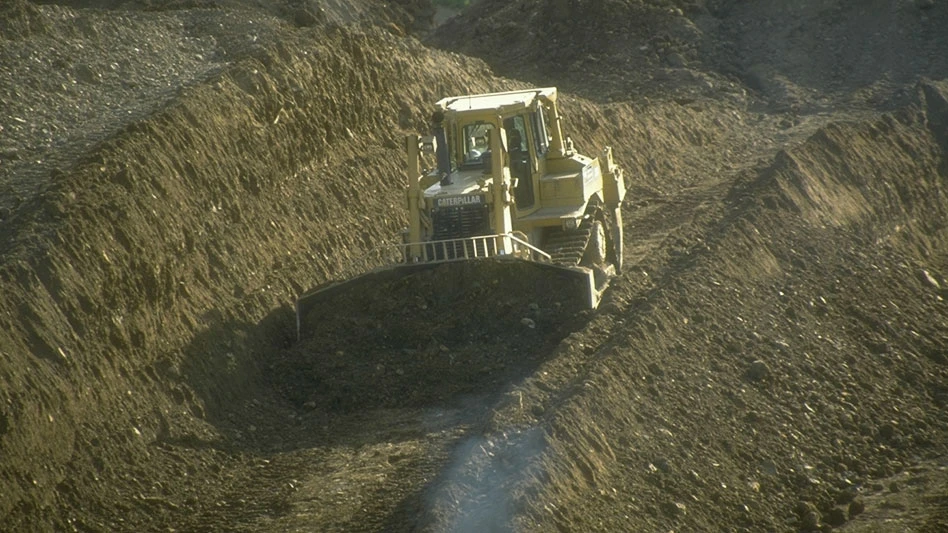
According to a news release issued by the American Chemistry Council (ACC), Washington, leading plastic companies have presented Congress with an outline of five actions the legislative body can take to grow the circular economy for plastics.
The strategy includes a national standard for plastic packaging to contain at least 30 percent recycled plastic by 2030, developing an appropriate regulatory system that enables rapid scaling of advanced recycling and an American-designed producer responsibility system for packaging that raises critical funding dedicated to improving recycling access, collection and education for all materials, the ACC says.
The association says 78 percent of voters support a national program to require that plastic packaging include 30 percent recycled plastic by 2030, according to a study conducted by BWC. The ACC adds that Independent Commodity Intelligence Service estimates that 13 billion pounds of recycled plastic would be needed by 2030 to achieve this.
The ACC’s Vice President, Plastics, Joshua Baca, says advanced recycling, or chemical recycling, will be critical in enabling an adequate supply of recycled content because it allows more volumes and types of plastics to be recycled than can be achieved with current processes. “These technologies and capabilities can help the more than 400 global brands that have committed to using more recycled plastics in their packaging to achieve their circular business goals,” he says. “Advanced recycling also will allow recycled plastics to be used broadly in more demanding applications, such as packaging for food, pharmaceutical and medical-grade products, which is currently limited.”
Advanced recycling technologies will help achieve two of the plastics industry's circular economy goals: making 100 percent of U.S. plastic packaging recyclable or recoverable by 2030 and ensuring 100 percent of plastic packaging is reused, recycled or recovered by 2040.
“It’s time to accelerate the circular economy for plastic packaging,” Baca says. “We need Congress to act on a comprehensive national strategy that will capture the value of used plastic by engaging the entire plastics value chain, from plastic makers to brand companies to all Americans.
“We’re proposing a new way of looking at plastic waste that will lead to a circular economy in which plastics are routinely reused. These policies will divert plastic waste from landfills and our ocean, conserve natural resources and help drive down greenhouse gas emissions.”
In addition to proposing the recycled-content requirement, regulations that support chemical recycling and producer responsibility legislation, the ACC also is calling for Congress to direct the Environmental Protection Agency (EPA) and the Department of Energy (DOE) to bring together the plastics value chain and municipalities to develop a national recycling framework for plastics and to engage the National Academy of Sciences to conduct a study that compares the impacts of raw materials and use its findings to guide future policies.
The ACC says it supports “an American-designed producer responsibility system for consumer packaging that strengthens environmental protection and is dedicated to helping fund infrastructure development.” The organization adds, “An American-designed producer responsibility system, prioritized to modernize and expand access, collection and consumer education, would help provide critical funding dedicated to developing a more circular economy for consumer packaging. In addition, implementation of clear national recycling standards that embrace all economic and environmentally sustainable forms of advanced and mechanical recycling will be a critical enabler of any producer responsibility system. A well-designed program and clear national standards should provide the right incentives and disincentives to prevent litter, discourage landfilling and encourage recycling aligned with The Recycling Partnership and the EPA Waste Management Hierarchy.”
The ACC says such a system would improve the recycling system overall by increasing access and modernizing the collection of all recyclables; provide funding to help improve recycling access, collection, sorting and outreach by investing all money collected through fees on consumer-packaged goods back into the system; consider and incentivize the use of packaging materials with better environmental performance; support innovation in recycling technologies via the private and public sectors to ensure more used plastic is reused and not treated as waste; and maintain and promote a competitive, free-market approach to strengthen manufacturing supply chains and to develop recycling infrastructure and new circular markets for recycled plastics through appropriate collaboration across the plastics value chain.
Latest from Waste Today
- Cielo again defers annual meeting; cites postal strike
- Anaergia Services enters into contract with Rialto Bioenergy Solutions
- Casella announces offering of revenue bonds
- New Hampshire pauses proposed landfill rules
- Waste Connections, Food Science Corp. partner with Texas city to recycle food waste
- Waga Energy signs partnership agreement with technology provider
- AMCS launches the AMCS Platform Winter 2024
- Pettibone adds new model to telehandler line





